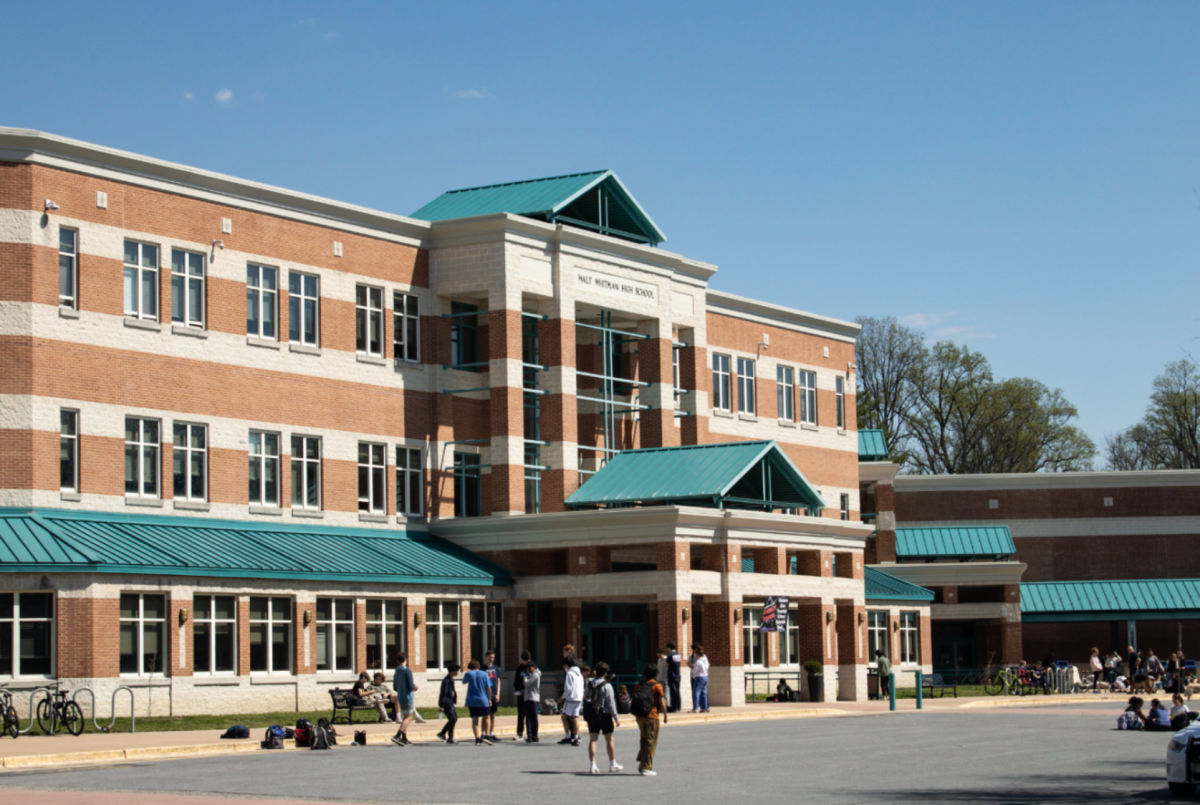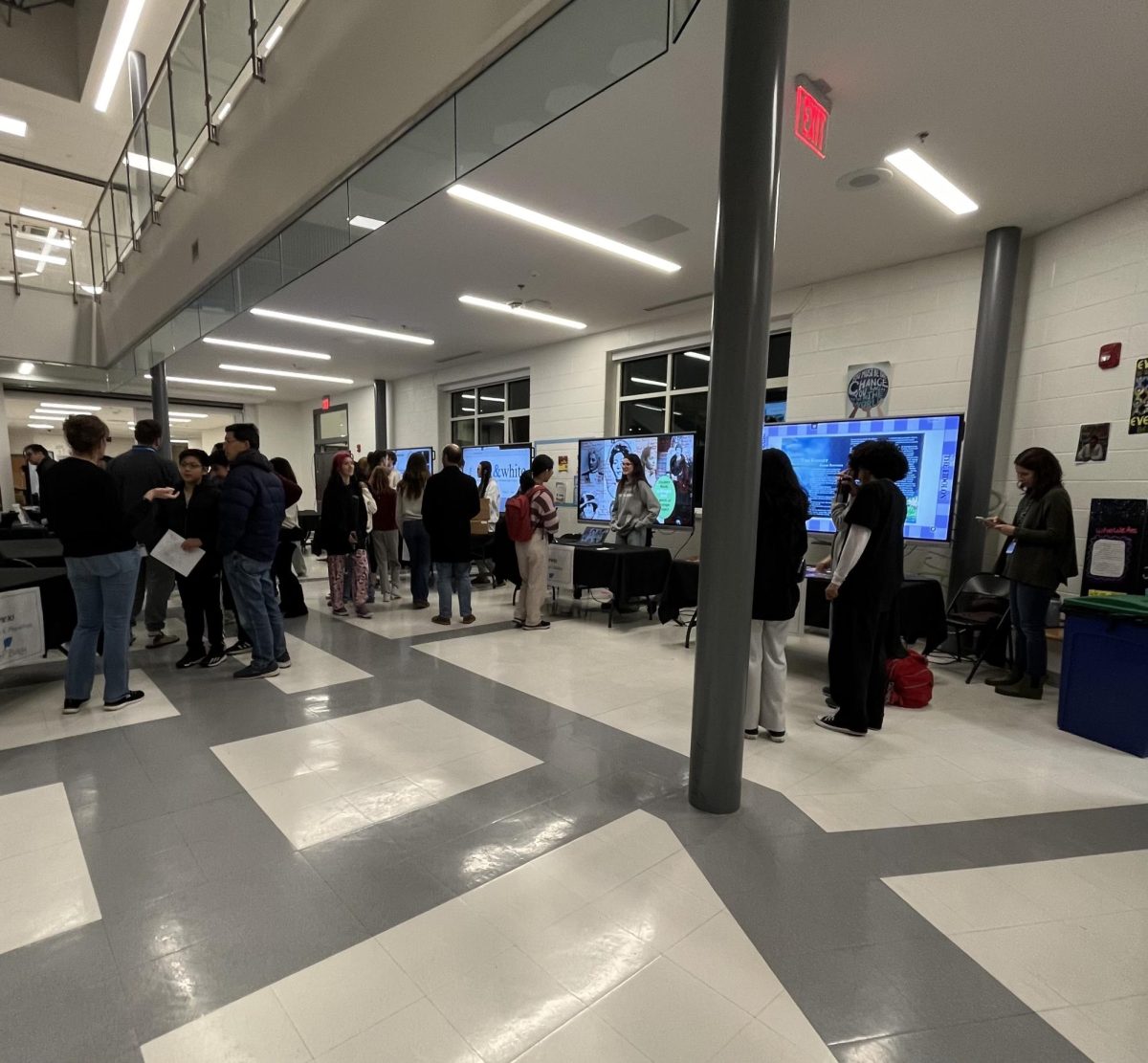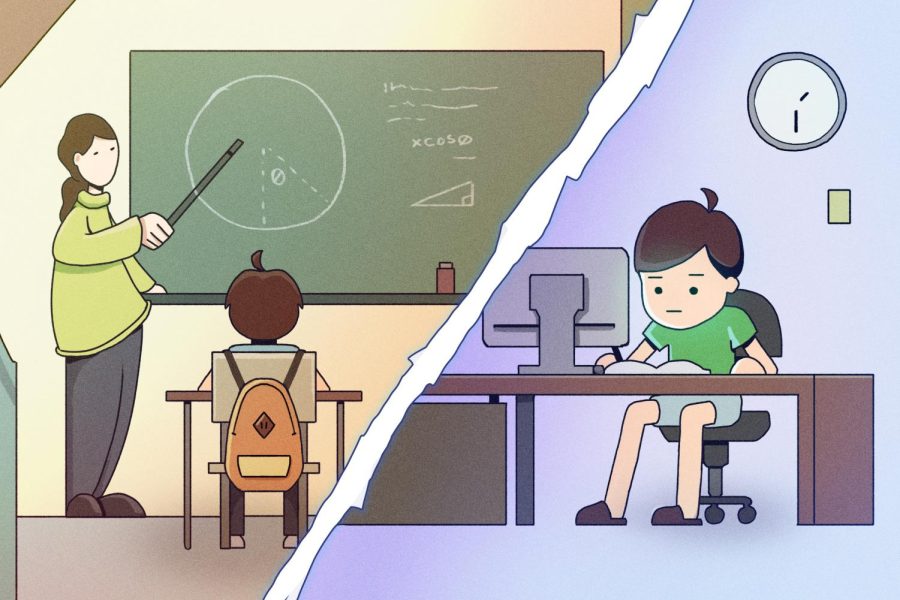
Whitman students have recently been contributing to LGBT activism: April 17 was a day of silence, and April 27 students went to Georgetown University to counter-protest the Westboro Baptist Church.

But Whitman parent Douglas Hallward-Driemeier had the opportunity to create the greatest change when he argued in front of the Supreme Court April 28 for marriage rights for same-sex couples.
The case, Obergefell v. Hodges, has two parts. First, the Court will decide if states have the constitutional right to ban same-sex marriage. The Court’s decision has the potential to make same-sex marriage legal throughout the United States. Second, in the part of the case Hallward-Driemeier argued, the Court will determine whether states must recognize same-sex marriages performed in other states. A ruling will be issued by the end of June.
The Black & White talked with Hallward-Driemeier about his experience arguing the case and its implications.
B&W: Why do you believe this case is important?
DH: I think that it’s hugely important that we live up to the promise of equal treatment under the laws. I think that it’s really important that same-sex couples can make the same choices about their lives that opposite-sex couples do. Most importantly, it’s because I really really believe in how important family can be as the real foundation for your life.
B&W: How do you think it went?
DH: I think it went well. One of the things really I tried to do was to share with the justices the stories of our clients, because I think making it real and personal helps humanize it. This is so much more than just an abstract question; there are real lives that are affected dramatically. The justices always ask really hard questions, and they did that yesterday too, to both sides. I think it’s hard, always, to predict an outcome of a case. But I’m still very hopeful.
There were a lot of questions, including from Justice Kennedy, about the dignity of these couples. That’s the theme we’ve been trying to sound, so that was good to hear. The Chief Justice asked a question about why isn’t this considered a form of sex discrimination. I’m glad to know he’s seriously thinking about that, because that is one of the arguments we made in our briefs.
B&W: How did your client’s stories affect how you argued the case?
DH: We were arguing about couples who are already married. There was one couple, for example, that got married in California in 2008. Then in 2009 they adopted two children. The states on the other side are arguing that the whole purpose of marriage is to provide stability for children. One of the spouses gave up his job so that he could be a full time caregiver for these kids. You would think that the state would think that’s a great thing that those kids are getting that kind of care. He could do that only because he had that safety [from marriage laws], because he knows his husband is going to help support him and if for some reason their marriage dissolved, he might be entitled to some payment to help support him and the kids.
Then, the law firm the husband was working at transferred all the administrative jobs to Tennessee from San Francisco to save money. They get to Tennessee and they say, “No, sorry, you’re not married here.” That’s really destructive. We thought it was really important that the justices really see that.
B&W: Were there any unique experiences you had while arguing this case that differed from your previous experiences at the Supreme Court?
DH: There was a lot of media attention, and it started to get in the way because there were all these reporters that wanted to talk because they wanted to have their story before. Showing up at the court yesterday morning, there were huge crowds out there. I don’t think anybody recognizes me, so I was able to slip in anonymously in the side entrance. But that’s kind of distracting when you’re trying to focus.
B&W: Is there one key experience you’ll take away from arguing this case?
DH: I think that would be in the experience after the argument when the plaintiffs came up to me and told me how much they appreciated that their stories were told and knowing that the justices had heard them.






